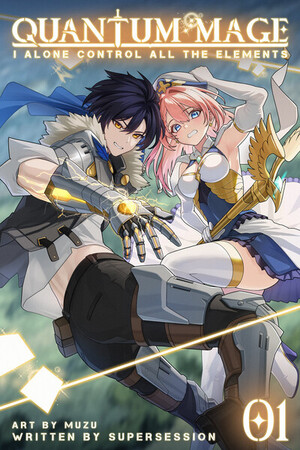Chapter 17:
Ronin in a Rusted World: II - Murder on the Kiseru Express
I Heard You Like Isekai, So I Put Isekai in Your Isekai
Marumi paused, holding the strange coin in her hand. “Do I know you?” she said to the ronin.
Kenichi laughed. “In another life,” he said.
She raised an eyebrow. “Is that some sort of line?” She set the coin down. When it tapped the countertop, the train gave a whistle before lurching forward on the tracks. “I can't accept this.”
Kenichi looked at the rows of bottles on the wall behind her. There were several varieties of sake as well as French liqueurs. To one side were a few teapots sitting over tealights, and a few bottles labeled “Eau Minéral.” In the corner, behind her, sat a shamisen.
“How about the coin and a song?” he suggested, pointing to the instrument.
Marumi looked from the ronin to the shamisen. After a moment of thought, she picked up the instrument and handed it to him. “You've piqued my curiosity," she said.
Kenichi took the shamisen, and after a few tentative plucks at the strings, started playing a song. It was a different experience than playing his guitar, but soon he was able to map a lot of the theory and practice onto this new stringed device. He started playing in earnest, playing a song that felt like it had unsung poetic words, and soon, every passenger in the dining car was paying attention to what he was doing.
When he finished playing, he handed the instrument back to Marumi. The passengers in the dining car were all silent for a moment. Then, one spoke up. “Different from most music I've heard, but not without its own inner beauty.” The man who said this was sitting alone at a table. He wore a kamishimo with embroidered bamboo trees and an eboshi. Beside him was a fishbowl with a wind-up koi swimming through the water. He looked at Marumi. “I'll gladly cover the boy's meal.”
She nodded to him. “Of course, Lord Taketori,” she said.
The man motioned for Kenichi to come over to his table. “Please, sit,” he said.
Kenich stepped over to the man's table and took the open seat.
“As the lovely proprietress has indicated, I am Lord Taketori, the daimyo of Dejima. What is your name, ronin?”
“I am Kenichi Chozen,” he said, giving a bow he hoped was polite enough for a man of this station.
“What brings you to the Kiseru Express?” said the daimyo.
“I am aiding the transport of goods to Edo,” Kenichi said, unsure if that's exactly what he was doing or if there was more to it. “And yourself?”
The daimyo smiled. “I am going to spend some time with my family.” He pointed to the fishbowl. “This is a gift for my son. He's fascinated by machines. Do you think he would enjoy it?”
Kenichi looked at the mechanical fish. It swam in a figure-eight pattern in the fishbowl. Occasionally, it would rise to the surface and stick its head out of the water. If it wasn't for the fact that it was made entirely of metal and gears, Keniichi would have thought it was a real fish.
“It's quite amazing,” he said. “Any son would be honored to receive a gift like this from his father.” He hoped that his formality didn't come across as forced.
The man laughed. “I am glad to hear it.” He leaned in close to Kenichi. “And if he turns his nose up at it, I'll come find you and give it to you. What do you say?”
Kenichi blushed a little. “I am honored. However, I would be surprised if your son did not appreciate it.”
Marumi came by with a cup of tea and a bowl of noodles. She set them down before Kenichi. It was yakisoba, and the tea had a strong, smoky scent to it.
Taketori grinned. “What a delightful blend,” he said. “Lapsang souchong pairs well with the savory pork in the yakisoba.” He looked over at Marumi. “I might have to hire that girl to be my private chef when I return.”
Kenichi smiled. “She's a good cook,” he said. “Thanks for the meal,” he said, then started eating.
Taketori was right. The smoky fragrance of the lapsang souchong commingled with the bold, sweet, and savory flavor of the noodles. Soon, he had finished the meal. He was feeling much better.
The daimyo grinned, pleased to see how much Kenichi had enjoyed the meal. “Now, if you'll excuse me,” he said, rising and picking up the fishbowl, “I'm going to return to my cabin and get some sleep. It's the only time I can get rest, it seems.” He nodded to Kenichi before stepping out through the front door of the dining car, toward the more elegant cars.
Marumi was back, picking up the empty bowl and cup. “He's a nice man,” she said, “but I hear that he often clashes with the shogunate.”
Kenichi had little context for the conversation, so he tried to steer it in a different direction. “That was a delicious meal,” he said.
“Thanks,” she said. “Would you like anything else to drink? I have plenty of genmiacha.” She nodded her head toward the Dutch man and the Chinese woman. “They're only drinking pu'er.”
Kenichi looked at the strange couple. He figured maybe they were traders. He followed Marumi back to the bar. She poured him a cup of genmaicha. “How did you know my name?” she asked.
He took a sip of the genmaicha, savoring its light grassy tones blended with puffed rice. “There was a girl back home who looked just like you,” he said. “She had the same name.” He set the cup down. “Coincidence, I guess.’
Marumi didn't seem entirely satisfied by this answer.
The Dutch man spoke up. “If I wished to know your name, I would sit back, unobserved, and listen. It would only be a matter of time before somebody said your name. Obviously, you'd be listed on the train's passenger manifest, and so it would be a trivial matter to connect the two to learn your full name.” He smiled. “Isn't that right, Miss Murakami?”
Marumi looked wide-eyed at the Dutch man. “Is everybody here secretly learning my name?”
The Chinese woman smiled, set down her cup of pu'er. “Apologies for my colleague,” she said, her words precise and articulated. “He is the sort of person who observes the world around him and then makes uncanny assertions based on his observations.”
“Hendrik van der Molen,” he said, tipping is tricorn. “Former merchant, now I provide private detective services for the constabulary and whoever else wishes to hire me. And this is my assistant, Dr. Yu Lan, a capable doctor and decent alchemist, and, just between the three of us, I think she's chronicling my cases for a book she's working on.” He laughed.
Dr. Lan tipped her head in a slight nod.
“We were called to help solve a case in Edo. The constables have no idea. It's what you might call a closed-room mystery. A samurai from a noble family, found dead in a locked room. No sign of seppuku, no known health conditions, and no known enemies. Naturally, they called me.”
“My colleague also has a high esteem of himself,” said Dr. Lan.
“It's well founded,” said van der Molen. He raised a hand to his ear. “In fact, I would wager that silver coin on the counter that, in a matter of moments, you'll see twelve automatons enter through that door.” He pointed to the back door.
Just then, it opened, and following the lead of a child playing a flute, several automatons danced through the dining car. They were the same clockwork kabuki robots Kenichi had seen in the caboose. Each wore a mask resembling the creatures of the zodiac. The procession spun and danced through the room before disappearing through the other door.
Van der Molen picked up the coin. “See?” he said.
Kenichi placed a finger on the coin. “I counted thirteen automatons,” he said. “And the child.”
Van der Molen frowned. “Yes, but you did see twelve automatons, as otherwise there would not have been thirteen.”
“My colleague does not like to be wrong,” Dr. Lan said. She sipped her tea.
Kenichi slid the coin toward the Dutch man. “Very well,” he said. “You win on a technicality.”
The three sipped their tea, Marumi refilling their cups along the way. While they sipped, van der Molen pressed Dr. Lan to recount some of his greatest adventures.
Mid-way through a story involving angry bees and a missing komainu statue, van der Molen eyed the front door of the dining car. Moments later, the clockwork kabuki carnival marched through again following after the boy with the flute. Van der Molen watched them pass with a stony gaze. When they had gone, he looked at Kenichi. “Twelve this time,” he said, his hand on the coin. “But I fear that something ill is about to befall us.”
Just then, all the lights in the train went out. Up ahead came a loud noise, somewhere between a struggle and a small explosion. The sounds of a man screaming and broken glass were mixed in there as well. Everybody in the dining car sat there, still, silent, and stunned. The lights returned, and with that, a murmur broke out among the passengers.
Van der Molen finished his tea, turning the cup upside-down on its saucer. “Here it comes,” he said.
The conductor burst through the door. His face was worried, but the look softened when he saw the Dutch man in the flat-topped tricorn. “Detective van der Molen,” he said. “A word?”
The man stood from his seat and went over to the conductor. Dr. Lan followed. The three huddled together for a quiet conversation. Part-way through the conversation, van der Molen waved Kenichi over. “I believe he may be able to assist,” he explained to the conductor.
The conductor nodded.
“Come along,” van der Molen said. He followed after the conductor, leading Dr. Lan and Kenichi into the next car.
They walked to the door of one of the private rooms. The door was hanging open. Van der Molen looked inside, gave a curt nod. He motioned for Dr. Lan to do the same. Kenichi saw her eyes widen at what she saw. Then it was Kenichi's turn. He looked inside the room. On the floor, in a tangle of robes embroidered with bamboo trees, lay a body. Beside him was a smashed fishbowl and the pieces of a mechanical koi scattered around. The man's skin was burned, as if the mechanical fish had exploded. Though Kenichi had only just met him, he recognized him immediately. It was Lord Taketori. Dead.
Van der Molen looked at the conductor. “It appears there's been a murder on the Kiseru Express.”




Please sign in to leave a comment.